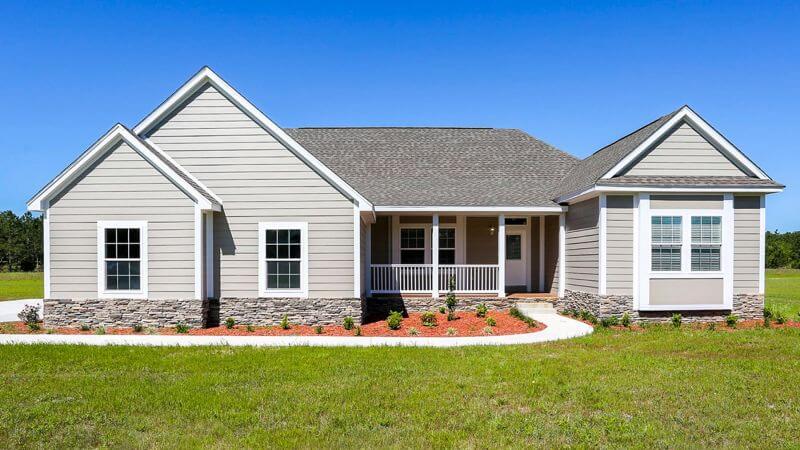Did you know that around 22 million people in America live in mobile or manufactured homes? Of this population, 56.4% have lived in their homes for over 10 years as homeowners, with many of these homes classified as real estate property.
The increasing popularity of mobile homes has led many to view them as a cost-effective, flexible, and reliable alternative to traditional housing. A growing number of people are also seeking to classify their mobile homes as real property.
But what happens when a mobile homeowner passes away? Are these homes treated as real property, or are they taxed differently? In this post, we’ll explore the probate process involved in buying a mobile home. Let’s dive in.
Key points we will cover:
- Classification of mobile homes as real property
- Tax implications for mobile homes
- Probate process steps
Real or Personal Property: What Exactly is the Mobile Home?
To understand how probate impacts mobile homes, it’s essential to know the difference between real and personal property. Real property refers to immovable assets, such as traditional houses or stick-built homes, which are built on land and permanently affixed to it.
Personal property, on the other hand, refers to movable assets, while home classified as real property includes those that are permanently affixed to land. So, is a mobile home considered real property or personal property?
A mobile home is considered real property only if the mobile home owner also owns the land it sits on, and the home is permanently attached, making it immovable. This means that the mobile home cannot be moved from its location.
If the mobile home is not affixed to the land or the homeowner does not own the land, it is classified as personal property. This distinction is crucial during the probate process.
When a mobile home is treated as personal property, it is handled like any other movable asset. Its value is assessed, and any debts or costs related to the home—such as rent for the land it sits on—are deducted during probate.
Getting a Loan for a Mobile Home
Obtaining a loan for a mobile home can be more challenging than for traditional homes, especially if it is considered personal property and is located on rented land.
To avoid complications, consult an appraiser who can clarify whether your mobile home is classified as real or personal property. This step is crucial in determining your mobile home financing options.
What About the Title?
Even if a mobile home is considered personal property, it still has a title that must be transferred when bought or sold. This transfer impacts its status as a home considered real estate property.
When mobile homes are manufactured and sold, owners are issued a title similar to that of a vehicle. When purchasing, ensure the title ownership is signed and transferred correctly before closing.
During probate, if the deceased has left a will naming a beneficiary to inherit the mobile home, the title will transfer to them. This process recognizes the mobile home as part of the real property.
If no beneficiary is named, the executor of the estate will handle the transfer or sale of the mobile home. This can be time-consuming and potentially costly, especially if rent is accumulating on the land where the home is situated.
Can You Convert Your Mobile Home From Personal to Real Property?
If you own both the land and the mobile home, and it’s permanently affixed, you may be able to convert it from personal to real property. To do this, you need to obtain the title certificate from the original owner of the mobile home, which is typically issued by the DMV. Since mobile homes are often classified as personal property like vehicles, changing their classification to mobile home requires a specific process.
De-Title Your Home With the DMV
Once you have the title certificate, visit the DMV to de-title the mobile home. This process changes the mobile home’s classification from an asset to a manufactured home as real property, allowing it to be recognized as real estate. After de-titling, you must record an affidavit at the county assessor’s office, proving the home is permanently affixed to the land and immovable.
Hire a Licensed Engineer
To complete the conversion, you will need a licensed engineer to inspect the mobile home’s foundation and certify that it is permanently attached to the land. This inspection ensures the structure meets the requirements for being considered real property. Once certified, the property can be legally classified as real estate, simplifying the probate process and increasing the home’s value.
Conducting a Title Search for a Mobile Home
When transferring the ownership of mobile homes, it’s essential to conduct a title search, as these properties differ from traditional real estate, especially when determining if the home is classified as real property. The DMV issues the title for the mobile home, and in some cases, there may be separate titles for the land and the home if different parties own them, complicating the deed transfer.
To ensure a clean title transfer during probate, check for liens or other financial obligations tied to the property. Conduct a municipal lien search to uncover any unpaid utility bills or outstanding debts related to the home, which may not be publicly recorded.
Check for Liens
Before the title transfer, ensure there are no outstanding liens or payments due. This step is crucial if the mobile home is part of a community association that provides services, as unpaid fees could delay the probate process regarding the deed. It’s advisable to work with an escrow officer or a reputable title company to manage the title transfer and ensure all obligations are settled.
Conclusion: Real or Personal Property?
Whether a mobile home is classified as real property or personal property depends largely on its physical attachment to the land and ownership of the land itself. When a mobile home is considered real property, it simplifies the probate process, as it is handled like traditional real estate.
If you’re looking to make this transition, de-titling your home and permanently attaching it to land can provide long-term benefits.
Always conduct thorough research to identify any liens and work with professionals to ensure a smooth title transfer. For more information on mobile homes and to explore our manufactured homes, visit Manufactured Housing Consultants today!




